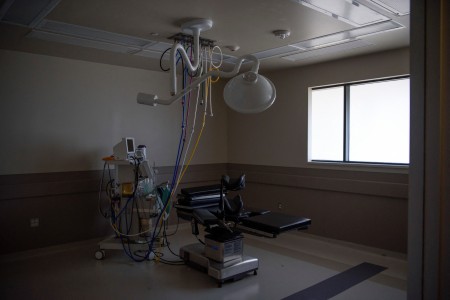By Daniel Wiessner
(Reuters) – A federal judge in Arkansas has tossed out a legal challenge by 17 Republican-led states to a U.S. agency rule giving workers who had abortions the same legal protections as those who are pregnant or recently gave birth.
U.S. District Judge D.P. Marshall in Little Rock, Arkansas said in a written ruling on Friday that the states lacked standing to sue over the Equal Employment Opportunity Commission (EEOC) rule, which takes effect on Tuesday, because the agency was unlikely to enforce it against them.
The commission’s rule implemented a law that Congress passed in 2022 with bipartisan support and the backing of major business groups, which requires most employers to accommodate workers who are pregnant or have related medical conditions.
Marshall in his decision said it was reasonable for the EEOC to include abortion as a related condition in the rule, and that the states’ claim that the regulation would interfere with state bans on abortion was speculative.
“This case presents a narrow disagreement over a few words, a disagreement that seems unlikely to flower into few, if any, real-world disputes,” wrote Marshall, an appointee of Democratic former President Barack Obama.
The EEOC and the attorney generals of Arkansas and Tennessee, who spearheaded the lawsuit, did not immediately respond to requests for comment on Monday.
The states said in the lawsuit filed in April that abortion is not a medical condition that Congress intended for the new law to cover. They said that being forced to accommodate state workers’ abortions would conflict with state laws barring the use of public funds to provide abortions.
Marshall on Friday said that in most cases workers who get abortions would not tell their employers beforehand, so states are unlikely to face lawsuits claiming they illegally refused to accommodate abortions. And even if that did happen, state employees could still sue for violations of the pregnancy law even if the EEOC rule is blocked, the judge said.
Fourteen U.S. states now ban nearly all abortions with only narrow exceptions, while several more have severe restrictions including bans after six weeks of pregnancy, according to the Guttmacher Institute, a research organization that supports abortion rights.
The states’ lawsuit also included a novel claim that the rule was invalid because the commission’s structure violates the U.S. Constitution. They claimed that the U.S. president, who appoints the EEOC’s five members, should be able to remove them at will.
Marshall on Friday did not rule on those claims.
(Reporting by Daniel Wiessner in Albany, New York, Editing by Alexia Garamfalvi and David Gregorio)













